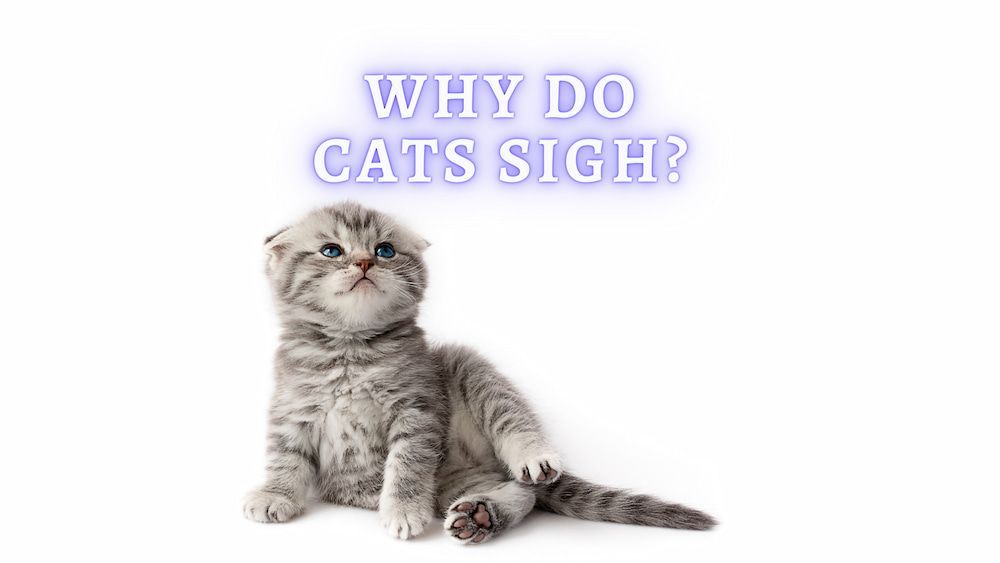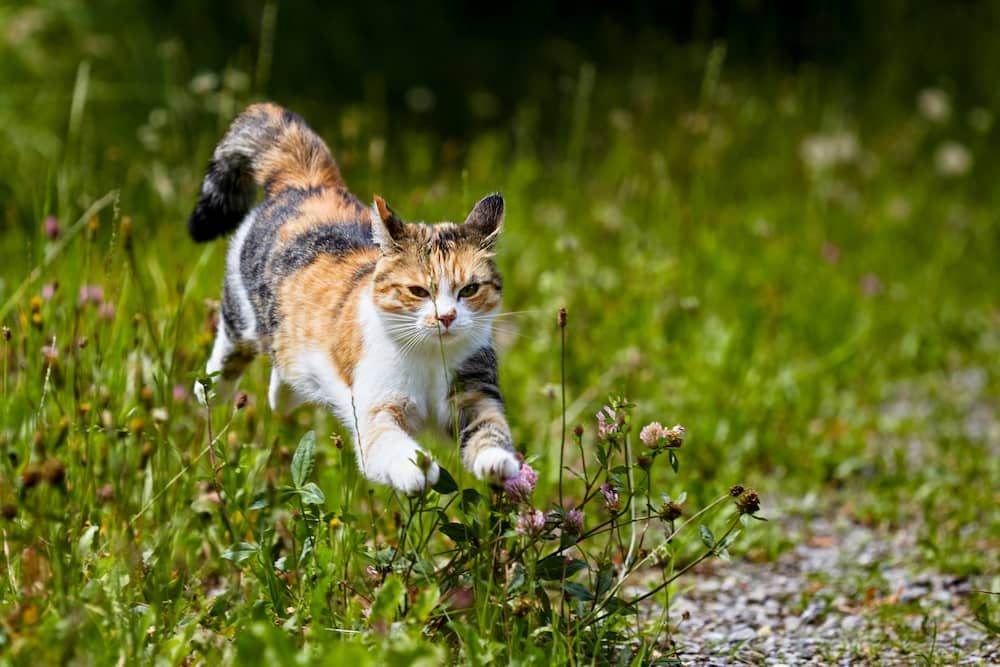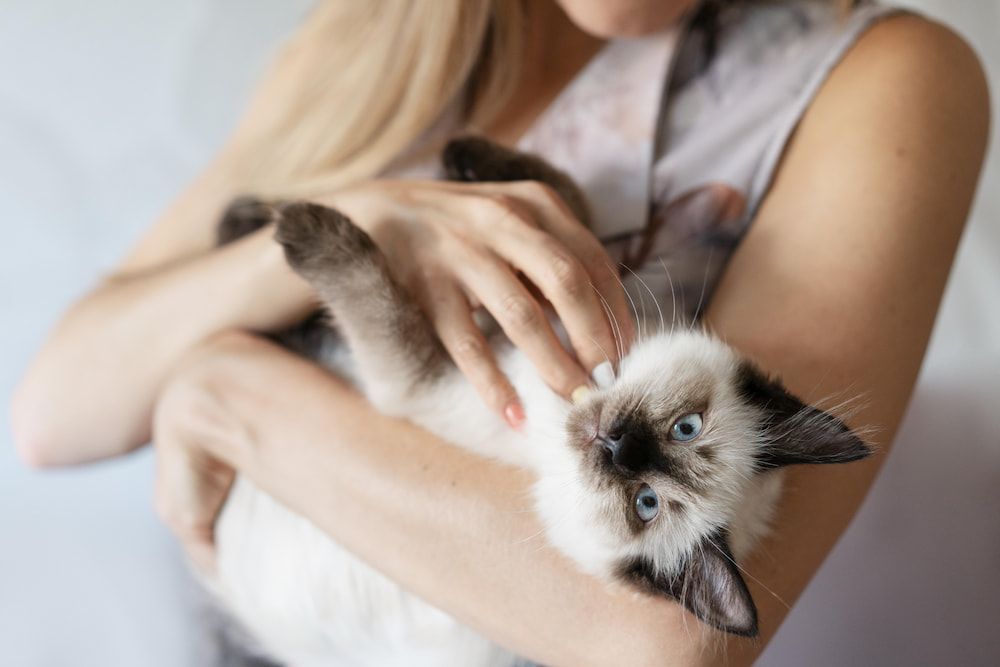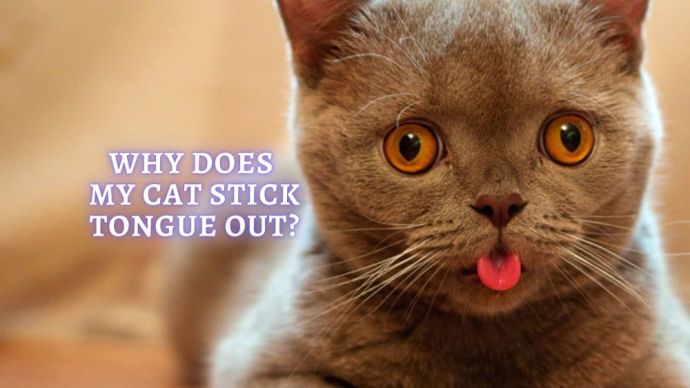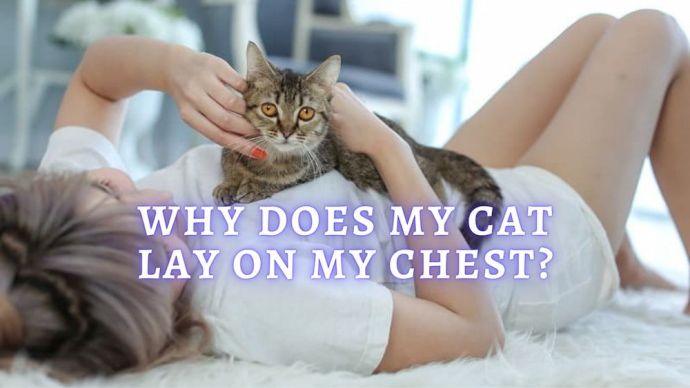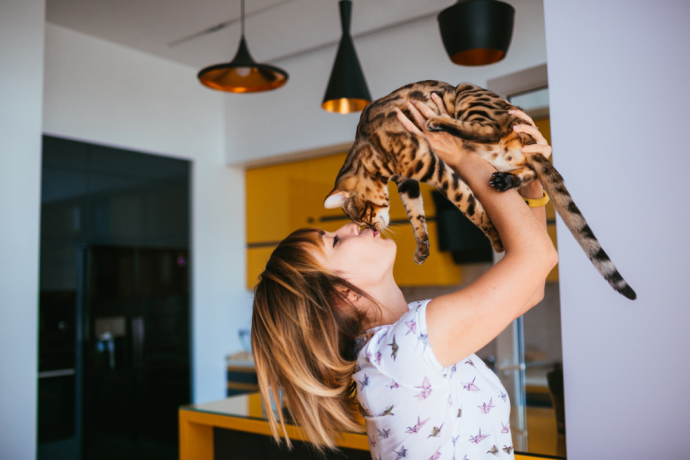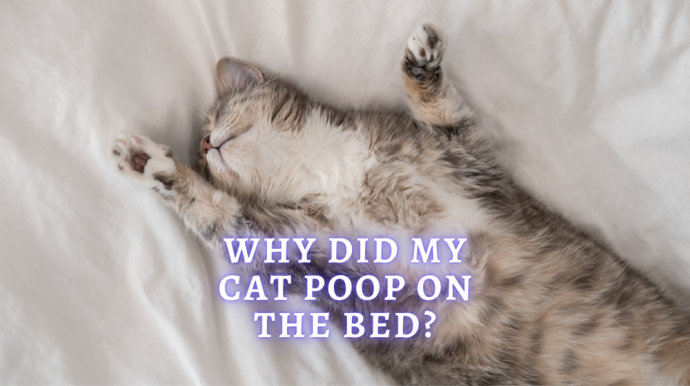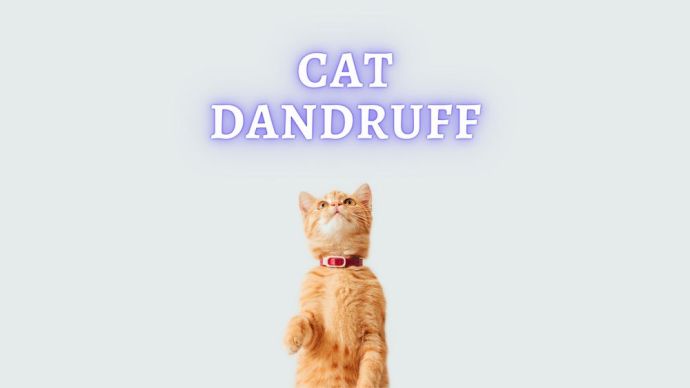Why Do Cats Sigh? Is it normal for my cat to sigh?
Written by:
Author: Marissa Prizio
Marissa Prizio attended the University of New Hampshire and earned a bachelor's degree in biomedical Animal Science. Marissa has always enjoyed writing; she was even mixing literature classes into her science major in college. During her writing career, she has edited eBooks, written for a variety of websites, and created audio-visual courses for sustainability.
View all 36 articlesLearn about our editorial process and veterinary review board.
Viewed: 1414
Updated on: 01/12/2022
Humans and their feline friends may look extremely different, but we have a lot in common with our cats. If you are a cat owner, you know the importance of sounds when connecting with your pet. Meows and purrs are commonly understood, but what do you know about more discrete vocalizations? In particular, let’s focus on the deep inhale and sharp exhale that we know as a cat sigh.
That’s right, kitties sigh too, but why they do it is different than what we may be compelled to think. So why do cats sigh?
Do Cats Sigh Like People?
Can you think of the last time you sighed? Maybe it was when you realized you had to get back to work or right as you sat down and got comfortable. Sometimes you may even be unaware of it, and that is because it is a natural behavior linked with emotional cues. Humans sigh because of stress, exhaustion, or relaxation. [1] The emotional or physical experiences that trigger sighs in other animals can be completely different, while the process itself remains mostly the same.
Sighing is a respiratory tract function, so other animals with lungs can produce sighs the same way humans can. A human sigh commonly includes a deep breath followed by a shorter and sharper exhale. The same is seen in sighing cats. This can be done through the nose or the mouth, and the duration of sighs can vary. While we do share the physical ability to sigh with animals, it is not necessarily the same thing. [2] Some animals may produce a beep-like sound or other noises with the exhale of their sigh. They may even sigh in combination with purrs or other noises, depending on why they are sighing.
Now that we know the how behind this behavior, let look deeper into the real question here. Why do cats sigh?
Reasons why your cat is sighing:
For cat owners, it can be easy to get concerned when your kitty shows any new or abnormal breathing patterns, but you can relax when it comes to sighing. It is perfectly normal to sigh, but why do cats sigh? They sigh to communicate through body language, and learning the multiple reasons behind sighing can help you better understand what they need.
Relaxation
If someone notices that you are sighing, they may ask you what is wrong. When it comes to our cats, we should be asking what is right. This is because cats sigh when they totally relax. [2] In the world of cats and dogs, a deep sigh while laying down in a comfortable position is a sign of relaxation. These sighs may be combined with slow blinks, gentle movements, and an overall calm demeanor for cats specifically. They may even fall asleep after a deep sigh.
Cats need to have spaces where they can relax and rest. If you see your kitty in a resting position and notice that they let out a relaxed sigh, you should take note of the conditions that are helping them feel relaxed. This could be useful information when you are helping your cat settle down after a stressful experience or if you are trying to encourage bonding by relaxing with them.
Contentment
Contentment is an emotional state of happiness or satisfaction. It is similar to relaxation, but when your cat is content they will be more alert and engaging than when they are relaxed. A content kitty will show many signs of their happiness if you know where to look. A tail that is held high with a slight hook at the end or light vibrations can be a tell-tale sign of your cat’s contentment. This may be followed by head butting and the rubbing of their cheeks on you or other favorite items. [3]
Happy cats are commonly associated with purring. While that may be one of the most easily identifiable noises our kitties make, it is not their only sound of contentment. If you pay close attention, you may notice your cats sigh while displaying body language suggesting emotional content. As you share their happiness and give into their cuddly attitude, you may even find yourself sighing as you forget your troubles and join your cats’ joy.
READ MORE: Why Doesn’t My Cat Purr?
Boredom
Cats may have been domesticated for thousands of years now, but that does not remove all of their wild ancestries. Cats, especially those that live in the house, need forms of entertainment that keep both their bodies and minds healthy. Much like humans, felines sigh when they are bored. It may be hard to tell the difference between a bored and a relaxed cat at times, but there are a few clear signs. A bored kitty will seem restless and may go to great lengths looking for entertainment. When they can’t find entertainment, you may notice them sighing in disappointment at their seemingly unsolvable boredom.
Dogs have also been known to display sighs of boredom, commonly paired with large alert eyes. [4] You may have noticed this when your dog spends too much time inside or if you don’t play with them when they are looking for entertainment. Dogs and cats may be very different species, but dogs can be a great reference point for understanding boredom sighs in other animals.
So how do you stop the bored sighs? More toys, of course! Offer toys that will challenge their mind and keep them engaged. Treat associated toys, catnip toys, and even boxes can all be good fun for your cat. Based on their receptiveness to these adventures, you can also offer your pet new experiences, like going for leashed walks. If your cat is well stimulated and enjoying life, you are unlikely to catch them breathing a sigh of disappointment while they minimally interact with items around the house.
READ MORE: Best Cat Toys (Reviews & Buying Guide)
What is the difference between a sigh, a huff, and a chuff?
Many cats are capable of sighs and huffs, including big and wild ones. Some noises are reserved for greeting loved ones while others only happen when cats are feeling threatened. This interesting aspect of their anatomy and social behavior makes cats easy to read once you can tell the difference between these other sounds.
A sigh was covered in the prior sections, but here is a brief recap so you can easily compare it to the other two sounds. Sighs are the sound created from a deep inhale followed by a sharp exhale. This can be done either through the nose or mouth and it is commonly associated with feelings of relaxation, contentment, or boredom. Sighs are a shared experience amongst members of the feline family and they tend to share the same purpose, but other noises can be more specific.
Chuffing is a breathy sound that is the big cat’s equivalent of a domestic kitties purr. This sound is commonly used when one big cat affectionately greets each other. It is a low, choppy, and breathy noise emitted from the nose while the mouth is closed. The other cat will reciprocate this noise commonly. Domestic felines do not chuff, so pay attention if you catch your feline friend making choppy breathy noises, it may be a reason for concern. [5]
Huffing is a noise that domestic cats naturally make, and unlike sighing, it normally has a negative connotation. A huff is a short firm breath of air that cats push out of their nostrils while their mouths are closed. This sound is short and quick, unlike the elongated nature of a sigh. If you notice your cat huffing, they are trying to communicate frustration with you or other felines. [5] Take note of everything happening at that moment and you may be able to discover what is causing them to be upset. Maybe you are late to fill their food bowl, or you moved their favorite chair. Felines huff to display irritation, so identifying these huffs can help you keep them happy!
When should I be concerned about a cat sighing?
Abnormal breathing patterns in cats are a good reason to seek veterinary guidance. Now that you know how to identify a cat’s sigh, you should be better able to identify other respiratory patterns that are more concerning. For example, labored breathing is much different than a sigh. Unlike a sigh, this form of audible breathing is continuous and will come with other signs of distress. A cat that is experiencing labored breathing may also pant or show signs of low oxygen, like pale gums. [6]
Coughing and sneezing are also noisy forms of respiration that should receive veterinary advice, especially if they are happening frequently or are paired with other signs of illness. Thousands of years of evolution have made cats experts at hiding signs of illness, so knowing the difference between your cat sighing and having breathing difficulty is very important. [6] If you are ever concerned about how your kitty is breathing, don’t hesitate to contact a trusted vet that can provide proper support.
FAQ
What does it mean when my cat exhales loudly?
A loud exhale can be just a release of air. If these exhales follow a big breath and your cat isn’t showing signs of distress, it is likely a sigh. If the loud exhales are continuous and your cat is having difficulty breathing, it is best to contact a veterinarian.
What does it mean when my cat huffs?
Cats can be temperamental and territorial creatures, and huffing is their way of displaying dissatisfaction, frustration, or anger about something. The reason for your cat huffing could be anything from a change in their schedule to an unwelcomed visitor in their space.
Why does my cat groan?
Cats howl, moan, and groan from time to time. They can be very vocal creatures, especially when they are trying to communicate with us. To determine why your kitty is groaning, take note of when it groans. If it is groaning during certain movements, it may be uncomfortable, or it may be groaning to express an emotional state.
What are signs that your cat loves you?
Cats live luxurious lives, but spoiling them does not guarantee a reciprocation of their love. You will know that you are their favorite person if your kitty shows body language, like slow blinking, head rubbing, and deep sighs when cuddling.
READ MORE: 8 Signs Your Cat Loves You
Article Sources:
- “I Sigh a Lot — What Does That Mean?” Cleveland Clinic, 26 Aug. 2020, health.clevelandclinic.org/i-sigh-a-lot-what-does-that-mean.
- “Why Does My Cat Huff At Me?” Animal Path, animalpath.org/why-does-my-cat-huff-at-me/.
- “The Telltale Signs of a Happy Cat.” Michelson Found Animals Foundation, foundanimals.org/telltale-signs-happy-cat/.
- “How the Sounds Dogs Make Reveal Their Emotions.” American Kennel Club, akc.org/expert-advice/lifestyle/how-the-sounds-dogs-make-reveal-their-emotions/.
- Wyzykowski, Shelby. “Cat Chat 101: The Basics of Domestic and Wild Vocalization.” Carnegie Museum of Natural History, carnegiemnh.org/cat-chat-101-the-basics-of-domestic-and-wild-vocalizations/.
- Goldstein, Richard. Lung Ailments: A Widespread Source of Feline Woe. vet.cornell.edu/departments-centers-and-institutes/cornell-feline-health-center/health-information/feline-health-topics/lung-ailments-widespread-source-feline-woe.
 Cat Care Why Does My Cat Attack My Legs? 10 Reasons Why and What To Do About It (Vet-Approved Advice)
Cat Care Why Does My Cat Attack My Legs? 10 Reasons Why and What To Do About It (Vet-Approved Advice) - 45082
- 21
 Cat Care How to Get an Aggressive Cat Into a Carrier? 6 Methods to Get a Cat Into a Carrier
Cat Care How to Get an Aggressive Cat Into a Carrier? 6 Methods to Get a Cat Into a Carrier - 1088
- 0
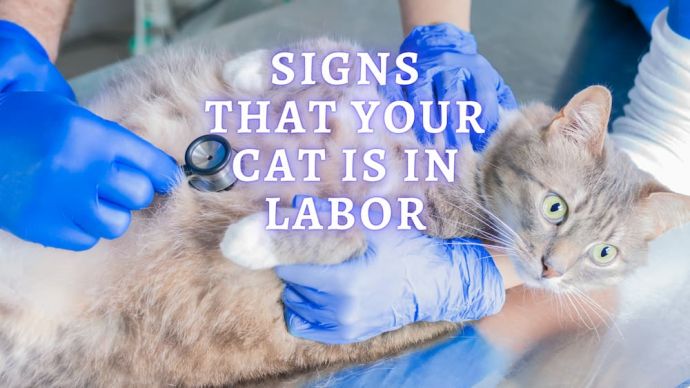 Cat Veterinary Tips Signs That Your Cat is in Labor: How to tell if a Cat is Pregnant?
Cat Veterinary Tips Signs That Your Cat is in Labor: How to tell if a Cat is Pregnant? - 13936
- 1
 Cat Care Why Does My Cat Attack My Legs? 10 Reasons Why and What To Do About It (Vet-Approved Advice)
Cat Care Why Does My Cat Attack My Legs? 10 Reasons Why and What To Do About It (Vet-Approved Advice) - 45082
- 21
 Cat Veterinary Tips Cat Stomach Gurgling: Vet Advice on Why is Your Cat Stomach Gurgling?
Cat Veterinary Tips Cat Stomach Gurgling: Vet Advice on Why is Your Cat Stomach Gurgling? - 33731
- 4
 Cat Veterinary Tips My Cat Lost its Voice: Can Cats get Laryngitis? (Vet Advice)
Cat Veterinary Tips My Cat Lost its Voice: Can Cats get Laryngitis? (Vet Advice) - 22890
- 13









